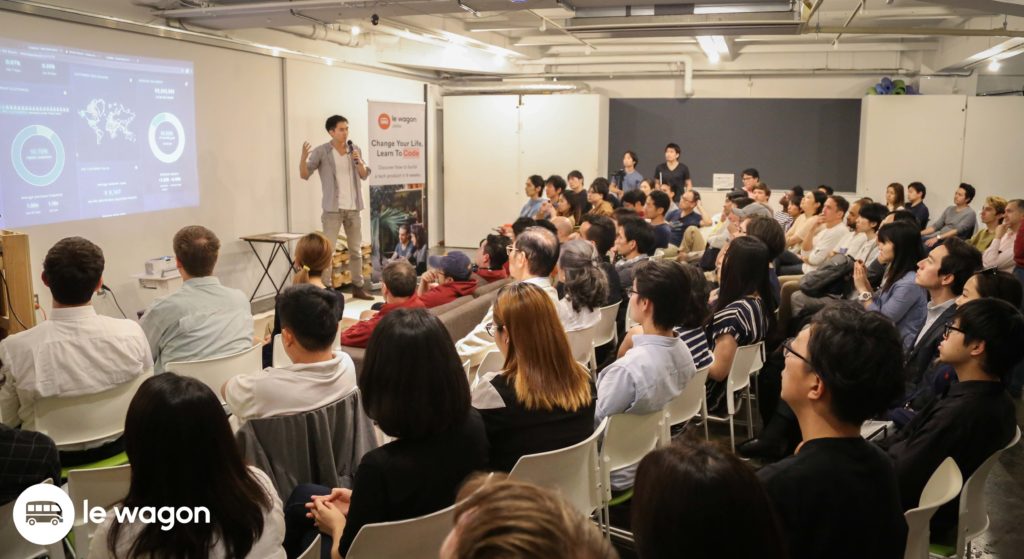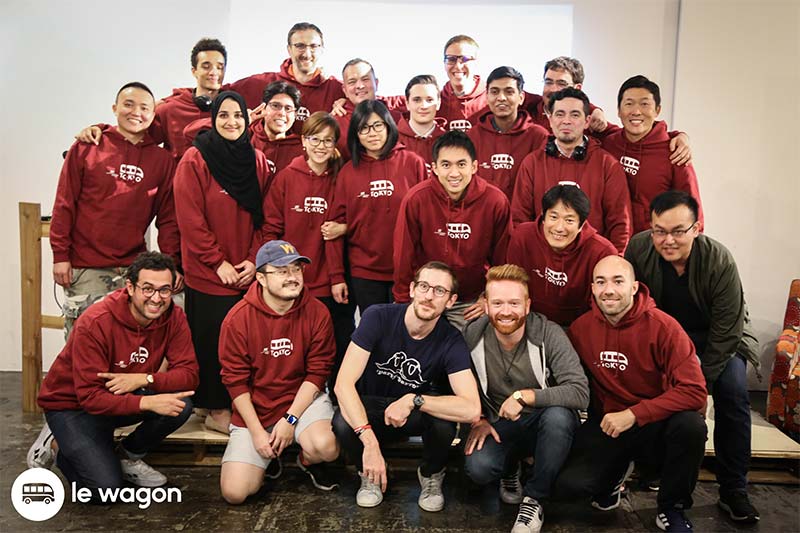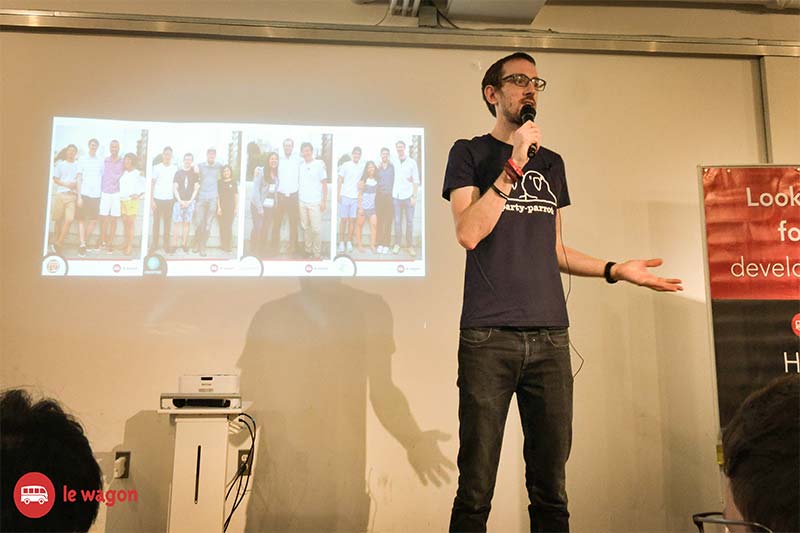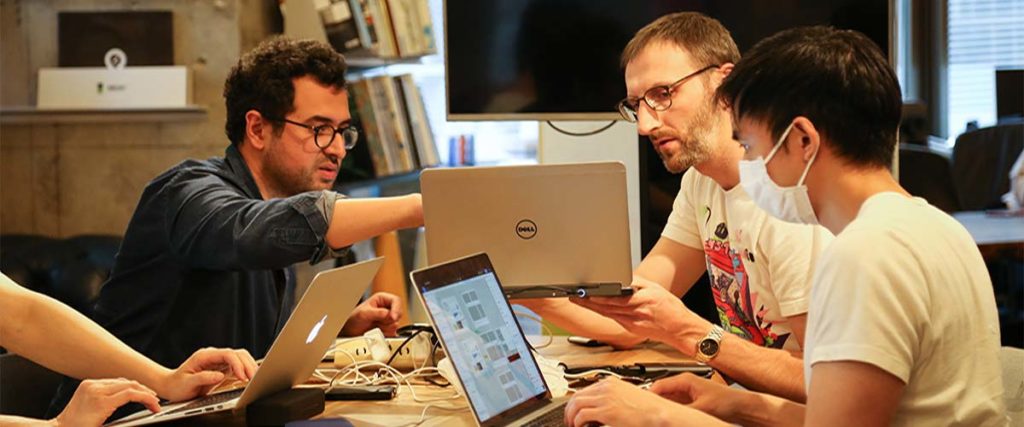Sylvain Pierre is the French-born, Tokyo-based founder of Le Wagon in Japan, a company that teaches entrepreneurs and creatives how to build full-stack web applications in just nine weeks. He told Hive Life his story.
A USD 240 million global phenomenon as of 2018, the coding bootcamp industry has seen the rise of a whole ecosystem of companies developed to teach students how to code in as little time as possible. One of the leaders of the pack is Le Wagon, a French company born in Paris in 2013 that has seen 5,290 graduates and 1,400 web applications through development. In just five years, it has expanded to 35 cities around the world, from South America to Japan. The #1 ranked coding bootcamp worldwide for three consecutive years, the firm offers a nine-week intensive coding programme that teaches students to build web applications and gives them insider tips on how to survive within a tech team, preparing them for the world of startups and entrepreneurship. Sylvain Pierre, Founder of Le Wagon Japan’s franchise, spoke to Hive Life about bringing the first English language coding school to Japan – and why programming skills are a must for budding entrepreneurs out there.

Originally from France, Sylvain moved to Vietnam in 2006 where he began his entrepreneurial journey at Officience, a fast-growing French Business Process Outsourcing (BPO) startup that went from a team of 3 to 300 in only five years. Having always wanted to move to Japan, he then took the plunge in 2013 and, together with a few friends in Tokyo, he started a network called French Tech, an informal group for people working in tech or launching startups.
“At that time, I was coming to Japan on and off. My goal was to meet people. I did not have any specific business objectives. I was really interested in hearing their stories rather than trying to sell them something,” says Sylvain, explaining how his focus on networking impacted his later life. “It helped me build genuine connections and it became extremely valuable when I started Le Wagon three years later. Those are the people who probably helped me the most in the beginning.”
You might also like Time’s Up on the Male Monopoly of Coding
“I don’t know if it has to do with the cultural influence from Asia, but I started appreciating a trust-first approach in my relationships. Trust the people you work with instead of focusing on putting everything down on paper right from the beginning. I would say that in the US, everything has to be on paper and you have to go through lawyers. In Asia, however, I feel that business relations are first based on trust.”

Along with his trust-first approach, the ability to act quickly is another aspect he values wholeheartedly when building a business. “A lot of entrepreneurs I meet in Japan are still very cautious about launching their service before it is 200% ready,” explains Sylvain. Taking the leap with Le Wagon in 2016, he was determined to bring the product to market as quickly as possible: “When we started, there was absolutely no coding bootcamp in Tokyo. We were the very first English bootcamp,” says Sylvain.
After initially building a landing page to test their idea, the team saw an interest in Japan’s market. “We had our landing page up, which, back then, was for Tokyo Code School. There was no actual service delivered behind it; it was just a ‘coming soon’ page. But even then, people would contact us and ask when we were going to start. In just two months, we received maybe 50 inquiries, so we saw that there was strong interest and we launched,” explains Sylvain on how they took off.
To date, Le Wagon Japan has seen over 160 students flying to Tokyo from 40 different countries to learn to code. Less theory, more practical, Le Wagon’s curriculum prides itself on being extremely well-designed and very dense. “One of our unique selling points is a single curriculum: the Paris team has been working on it for the last six years, improving it after every session. Furthermore, we have a very product-oriented mindset – one that is very attractive to entrepreneurs and creative people,” continues Sylvain, who believes that with motivation, anyone can code. “We also teach a lot of technical concepts that can make your professional life easier every day, for example, being able to build very short scripts that can extract data from web pages, or knowing how to read from an API – and even build your own.”

With 70% of their graduates ending up as full-stack web engineers and the rest being split between different positions, ranging from UI designers to product managers all the way to entrepreneurs starting their own companies, Le Wagon is proud of the journeys it has helped its students embark upon. “I am always impressed by how much the bootcamp is life-changing for our students and this is my main motivation for growing it further. It’s not only about learning how to code; by the end of the bootcamp, our students have a completely different mindset about work, lifestyle, freelancing or starting a company.”
Looking forward, Sylvain still sees plenty of room for growth for Japan’s coding education industry: “Being a businessman or a manager is still more socially and financially rewarding than being an engineer. But, with the job market currently offering three to four engineering positions per applicant, I am sure this will evolve quickly.”
Related Articles
Gaijin Bank: Is it Time for Tokyo’s Workforce to Diversify?





